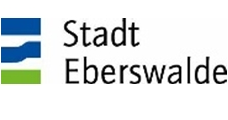Condition and Tools: Change Management
Module description
(with Prof. Dr. Hartmut Ihne, J√∂rg-Andreas Kr√ľger, Prof. Dr. Pierre Ibisch, et al.))
Transition towards global sustainability requires profound changes in lifestyles, organisational practices, business and politics. This module introduces the students to conditions and tools that are relevant in bringing about such transitions.
The module is structured in the following topics:
Ethics of global change (Hartmut Ihne)
Global change impacts are not distributed evenly among countries and regions. Developing countries are more vulnerable to climate change due to the limited economic resources, importance of agriculture and other vulnerable sectors in the national economy and due to high population pressure. Simultaneously the cumulative emissions of the past can clearly be attributed to industrial countries, who thus have moral obligation to mitigate and help to adapt to climate change. Questions of global justice are closely interlinked to discussions about mitigation targets and adaptation and who is going to pay for this.
Global change communication (Guntram Platter et al.)
Global change is characterized by high uncertainties, long time perspectives and complex interactions between different scales (from local to global). These characteristics are a challenge in global change communication. This course introduces the students to different areas of global change communication including communication with decision-makers in business and politics as well as communication in the public media (press, electronic media, arts and entertainment). Furthermore communicating scientific results is discussed with special focus on uncertainty and risk.
Organisational theories and learning (Martin Welp et al.)
Management science and organizational learning have greatly influenced business practices in the last decade, but have in practice been largely neglected in global change research. This topic deals with different approaches to organizational learning, introduces the students to different methodological approaches including small and large group interventions, scenario practice, as well as simulations and modelling of dynamic systems. Furthermore students will train skills in moderation, negotiation and conflict management.
Actor driven strategies (J√∂rg-Andreas Kr√ľger, Marc S√ľsser)
Various actors are relevant in environmental policy. This topic deals with Organisation, structure and operation of environmental NGO and these influence legal, institutional and political processes. What are the fundamentals of lobbying and what Instruments can be applied to reach the relevant actors, is at the core of this topic. The course participants, in several working teams, develop a lobbying concept related to current environmental issues, including the scientific-technical preparation, communication strategy and costing, which is thought to support the on-going work of NABU. The elaborated concepts will be tested in the framework of discussions with politicians and/or representatives of antagonistic lobbying institutions
Policy advice (Hartmut Ihne)
Policies for sustainability refer to a complex context of goals, instruments, and action of global actors. The complexity of global development must be understood by those who shape the structures for our common future. Responsible political action for sustainable development needs applicable knowledge of the different dimensions of global change, their interdependency and interaction. Knowledge management and knowledge providing are of crucial importance for managing global change. Evidence-based policy advice is of growing interest for political decision makers. A close look will be taken on Climate Policy. The United Nations Climate Convention is selected as an example for closer inquiry. The history of the convention, its current challenges and the way forest resources are included in the convention are taken under strict scrutiny.
Strategies (Pierre Ibisch et al.)
Change management can follow different alternative paths. This part of the module deals with the questions how societal transformations take place. Are gradual transitions more likely? Or can we expect non-linear behaviour and fast changes of societal systems. What change processes are likely to lead to fast learning processes of societies?










